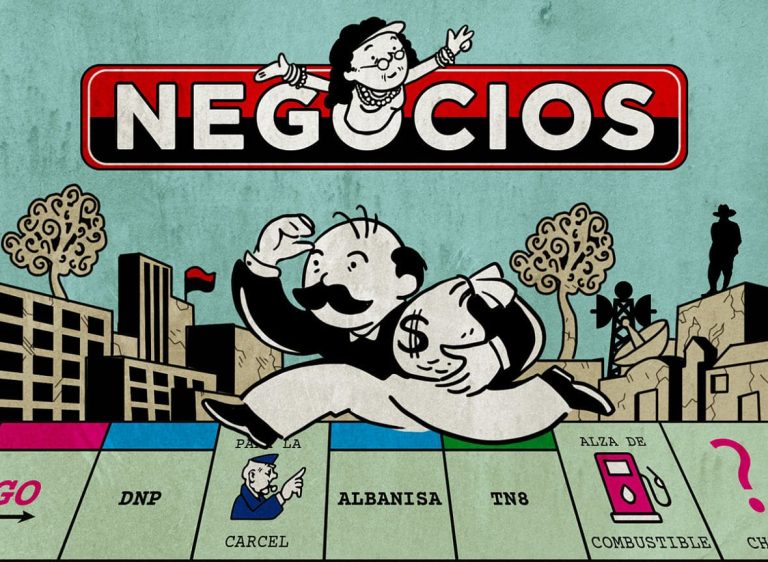

Maria Ressa at the Global Investigative Journalism Conference in Hamburg. Photo copyright: Nick Jaussi
Maria Ressa on the Battle for Truth, the Role of America’s Social Media Platforms, and What Comes Next

Keynote speaker Maria Ressa at the Global Investigative Journalism Conference in Hamburg. Photo: Nick Jaussi
Before she could even start to speak, Maria Ressa received a standing ovation, which brought tears to her eyes. She was out on bail, and was forced to pay a travel bond in order to leave the Philippines and come to Hamburg, where she gave a keynote address to an auditorium full of fellow investigative journalists from around the world.
“An attack on one is an attack on all,” she told the audience at the closing session of the 11th Global Investigative Journalism Conference, in a rousing speech in which she warned that the worst is yet to come in the global battle against disinformation networks; called on US social media platforms to step up their game; and urged journalists to band together for the long fight ahead.
“This is an existential moment where, if we don’t take the right steps forward, democracy as we know it is dead,” she said.
Ressa is the CEO and executive editor of digital news site Rappler, which has been a thorn in the side for the Philippines’ authoritarian president Rodrigo Duterte, with its investigations on his bloody drug war and on an online army of pro-Duterte trolls. In just a little over a year, Ressa said, the Philippines government has thrown a slew of charges at her and Rappler. She was arrested twice in a five-week period this year, and had to post bail eight times in about three months.
“I have done nothing but be a journalist — I have committed no crime,” said Ressa, who was named TIME Person of the Year for 2018, as part of “The Guardians,” a group of journalists targeted for their work that included Jamal Khashoggi, the Capital Gazette team, and Reuters’ Wa Lone and Kyaw Soe Oo.
The first time she was arrested, she said, the arresting officer told her he was only doing his job.
“He was sheepish, he was embarrassed, he was really uncomfortable. And I almost felt sorry for him, except he was arresting me, right? And think about it — this is the last act in a chain of events that is meant to intimidate and harass us because we’re journalists,” Ressa said.
This chain of events included online harassment and threats against the Rappler staff. After they first published a series about pro-Duterte trolls back in 2016, Ressa said she received an average of 90 — “ninety, not 1-9!” — hate messages per hour.

Maria Ressa at the Global Investigative Journalism Conference in Hamburg. Photo copyright: Nick Jaussi
What’s happening in the Philippines, she said, “is coming soon to a democracy near you” — if it hasn’t already.
“The attacks against journalists, the attacks against facts, the attacks against democracy — I’m convinced that the attacks against us and our values are so insidious that the equivalent of an atomic explosion has actually happened,” she said. “It’s ruptured our world, but all we do is chip away at the tip of the iceberg we can see.”
She shared a recent conversation she had with Cambridge Analytica whistleblower Christopher Wylie.
“He told me that the Philippines — and this is a direct quote — ‘creates an ideal petri dish where you can experiment on tactics and techniques that you wouldn’t be able to as easily as in the West. And if it doesn’t work, it doesn’t matter; you won’t get caught. And if does work, you can then figure out how to port that to the West.’”
She said she then asked Wylie if the Philippines paved the way for Brexit and Donald Trump.
“He side-stepped a little bit, uncomfortable, but here’s his entire quote, so stay with me: ‘Filipino politics kind of looks a lot like the United States. You’ve got a president who was Trump before Trump was Trump, and you have relationships with people close to him with SCL and Cambridge Analytica. And you had a lot of data being collected – the second largest amount of data after the United States was collected in the Philippines.”
She said that Wylie added: “Colonialism never died; it just moved online.”
In the Philippines, Ressa said, data shows that newsrooms have been pushed to the periphery, and in the center are the disinformation networks — some of them coming out of Russia and, increasingly, China.
“They are all actively sharing each other, while the journalists are not,” she said. “This is how alternative realities bloom.”
Ressa called on American social media platforms to do much more to stop disinformation from spreading. While Rappler is one of Facebook’s two fact-checking partners in the Philippines, that hasn’t stopped Ressa from criticizing the company: “We’re frenemies, comfortably so,” she explained.
“This online micro-targeting ad-driven business model structurally undermines human will: Our personal experiences are sucked into a database, organized by artificial intelligence, then sold to the highest bidder,” said Ressa. “It is – and has always been – about power and money. That has also taken money away from newsrooms — this is the irony, of course; they’ve taken the revenues and at the same time provided the platforms that have attacked our credibility. If nothing is done, this is a foundational threat not just to democracy, but to markets and to election integrity.”
So, how to fix this? “We need to demand enlightened self-interest from tech companies,” Ressa said. “It is in their interest to fix this. Because, in the long-term, yes, education is a solution; medium-term, it is media literacy; but in the here and now, who can fix this? It is only the tech platforms that can do something meaningful.”
Ressa also called for the creation of a global database of disinformation networks and a global interpol that “stops the impunity that nations and companies are getting away with every day.”
Finally, she appealed to the gathered journalists to collaborate on a global level, even if that isn’t always easy.
“Newsrooms are born to compete, but what we’re not seeing is that we’re no longer competing against each other — we’re competing against disinformation networks. We’re competing to tell the facts.”
Watch Ressa’s full speech:
During the 11th Global Investigative Journalism Conference, Rappler’s Murder in Manila series received the Global Shining Light Award.
 Gaelle Faure is GIJN’s associate editor. Previously, she worked for France 24, where she specialized in social newsgathering and verification. She has also worked as an editor for News Deeply and reported for Time Magazine.
Gaelle Faure is GIJN’s associate editor. Previously, she worked for France 24, where she specialized in social newsgathering and verification. She has also worked as an editor for News Deeply and reported for Time Magazine.









